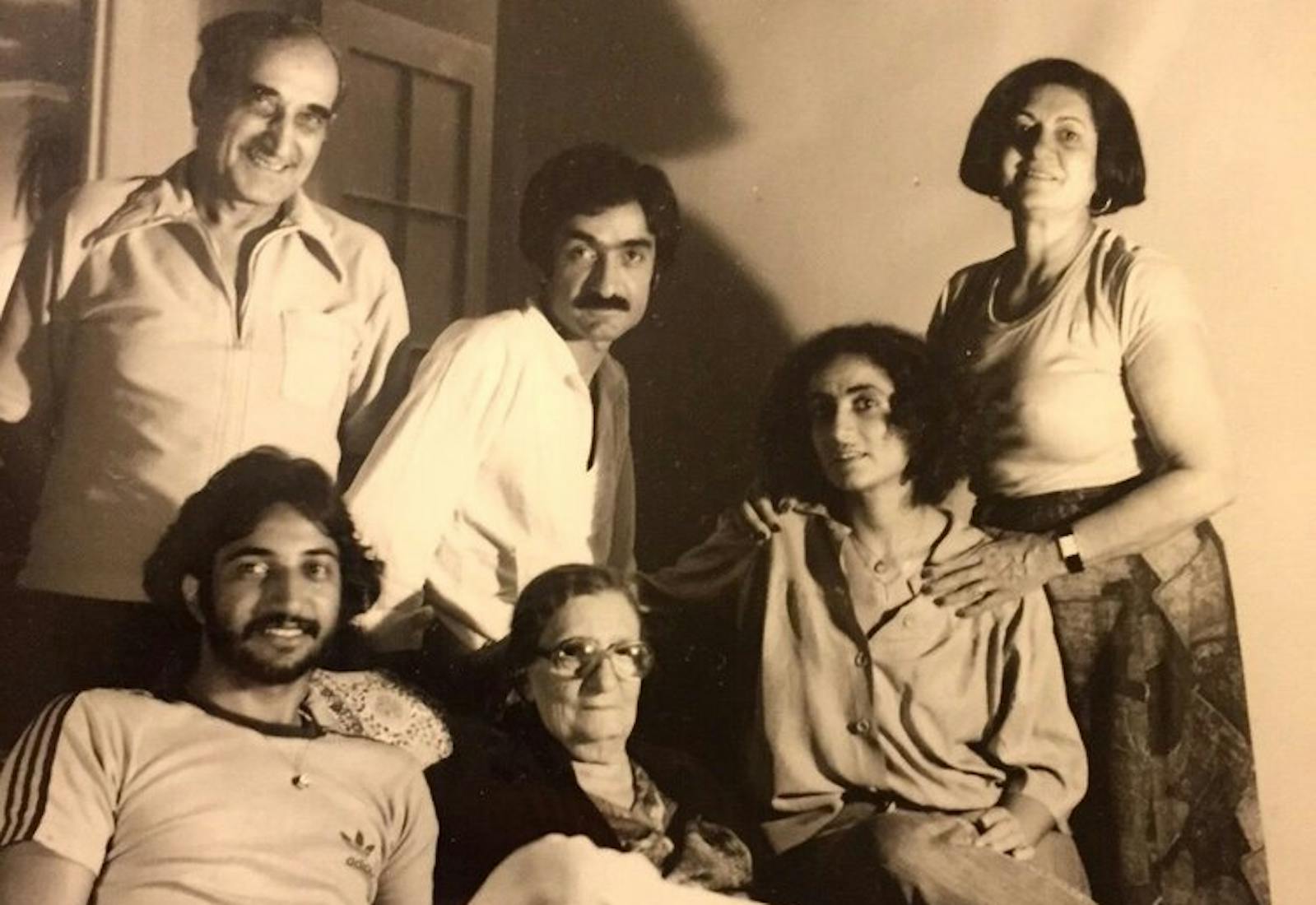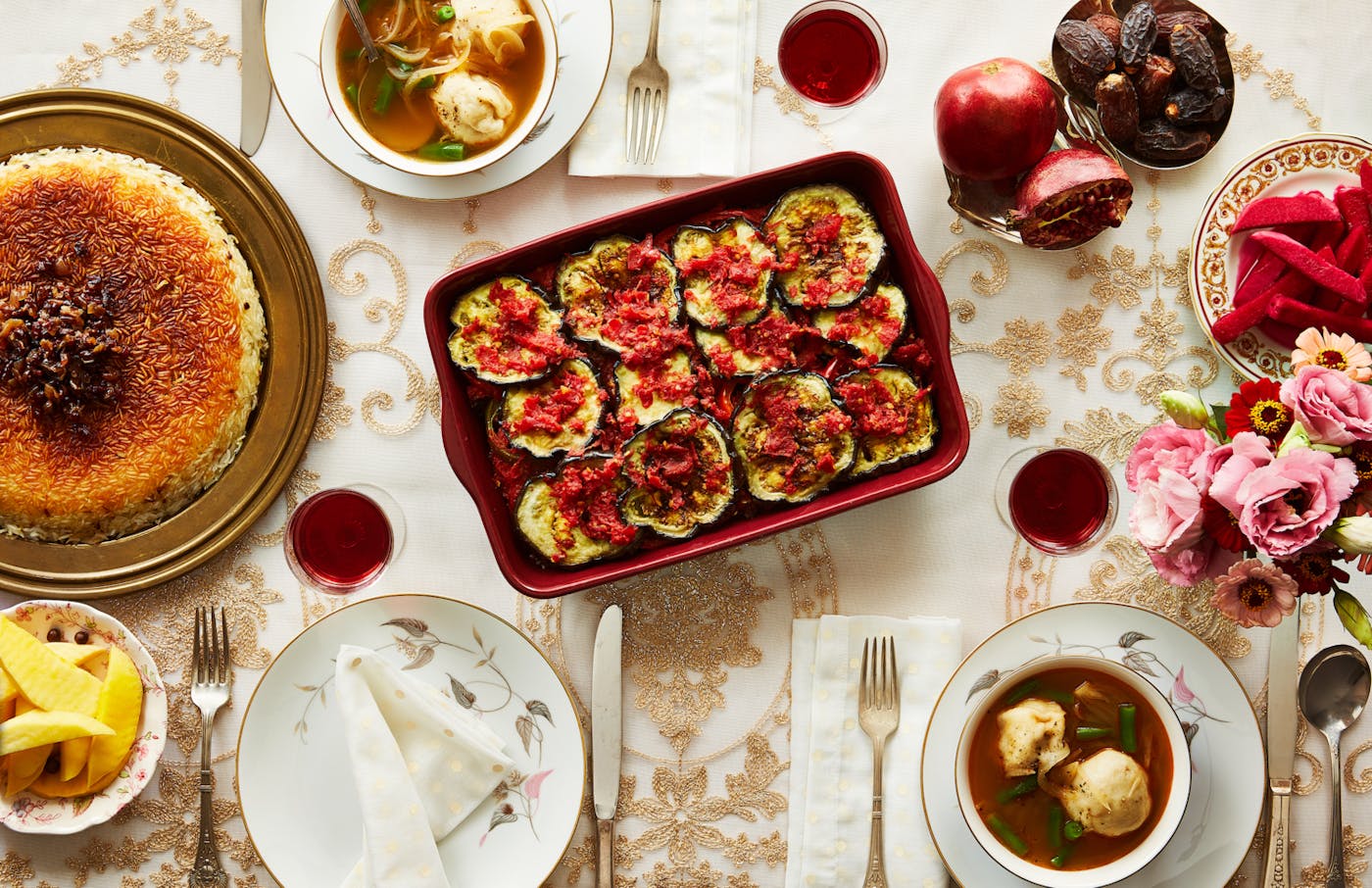Shared by Annabel Rabiyah


As the daughter of an Iraqi-Jewish emigre, Annabel Rabiyah says she grew up with a politicized identity. In her community, outside of Boston, “The idea of being both Jewish and Iraqi, or Arab, at the same time,” wasn’t always accepted or understood, she says. “Some people think those are two separate things — that you can’t be both at the same time.”
Her father Khuthur was born in Iraq where the Jewish community traces its roots to 722 BCE. “For the most part, until the very end, they led a lush life,” says Annabel. “They had positions of power and influence in the country and had friends across religious lines.” When her father and grandparents lived in Baghdad, the city was progressive and their life was calm. But, tensions and anti-Jewish sentiment grew in the 1940s and reached a fever pitch in 1967 with the Six-Day War in Israel.
The family, including her father, who was 12-years-old at the time, moved to North America never to return. “While we weren’t connected to our homeland, we were connected to each other,” Annabel says. Like in many diasporic communities, she adds, “food was the primary way they held onto their culture and history.”
Those recipes were a hallmark of her family home. On the weekends, her father would host brunch serving eggplant, eggs, and salads. The eggs were cooked slowly overnight with Iraqi tebeet, a whole chicken plunged into a pot full of rice. “We are blessed to have our entire family here and many people have been keepers of recipes in our family,” Annabel explains.
Her father and his brother learned those recipes as their mother Rachel was nearing the end of her life. She resisted teaching them for a time, telling them “men don’t cook.” But, ultimately agreed. The trio would spend time together in the kitchen and Khuthur and his brother would write down the recipes on index cards. “That’s the main record,” of her recipes, says Annabel.
On Rosh Hashanah, since Annabel was little she’s helped her father prepare Rachel’s kubbeh, an Iraqi dumpling often served in soup. “He would enlist me to hand roll them… there are different flavorings and shapes that go with each stew,” she says referring to the many variations on the soup which can be tinged pink by beets, made green with okra or green beans, or sour with the addition of lemon to the broth. “That was my main memory of Rosh Hashanah,” she says. They would invite friends and family over and serve the kubbeh alongside roasted eggplants with beef and tomatoes called ingriyeh and timmin, or slow-cooked rice, with h'kaka, or a crisp outer layer.
Her father’s cooking and their family’s culture inspired Annabel in 2017 to co-found Awafi Kitchen, which celebrates the cuisine through pop-ups, online cooking classes, and other events. “We wanted to see our family’s food featured in the public sphere,” she says, “I have a lot of very rich memories about Iraqi food and it felt important to show those stories.” They are a gateway into sharing the essence of her identity as an Arab Jew and the culture of her community.
